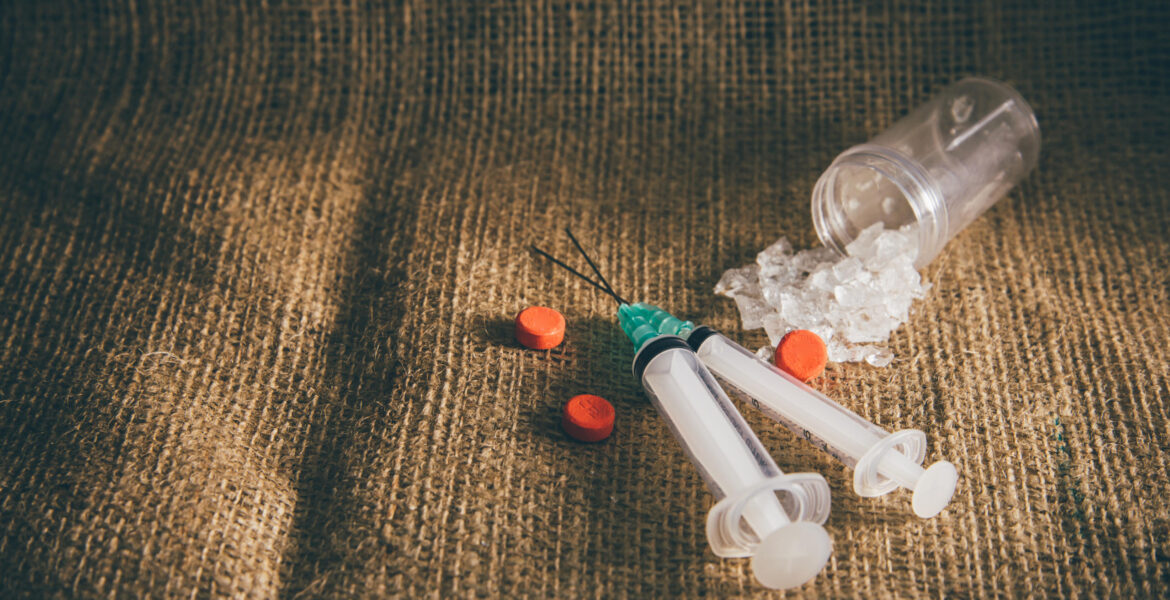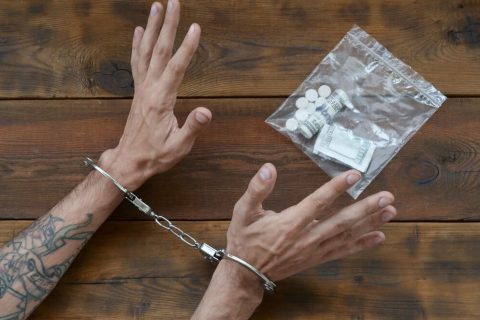What Are the Signs of Meth Addiction?

Crystal meth is a growing problem popping up in American communities.
Keep reading to learn how to recognize the signs of meth addiction and find out more about Atlantic Recovery Center’s meth treatment program in South Florida!
ARC is an addiction rehab center in South Florida that offers comprehensive addiction treatment for meth. To learn more about our top-rated Florida meth rehab, contact us today.
What is Crystal Meth?
Crystal meth is an extremely addictive stimulant drug that affects your central nervous system.
It is made from a combination of chemicals found in common cold medicines, including ephedrine or pseudoephedrine.
The drug comes in the form of tiny, clear crystals that can be smoked, snorted, or injected.
While crystal meth was first synthesized in Japan in 1919, it wasn’t until the 1990s that it became widely used in the United States.
Today, crystal meth is one of the most dangerous drugs on the market and poses significant risks to both physical and mental health.
What Are the Most Common Signs of Meth Use?
Meth user signs can vary depending on the individual and how much they have been using. However, some common meth addiction symptoms include the following:
- Dilated pupils
- Rapid eye movement
- Hyperactivity
- Increased talkativeness
- Decreased appetite
- Weight loss
- Tooth decay (known as “meth mouth”)
- Skin sores or infections
- Paranoia
- Mood swings
- Hallucinations
If you suspect someone you know may be using crystal meth, it’s essential to seek help immediately.
The longer someone uses this drug, the more severe their addiction becomes and the harder it is to treat.
What Are the Dangers of Using Crystal Meth?
Crystal meth poses significant dangers to both physical and mental health. Here are just a few examples of risk factors:
Physical Health Risks
Long-term effects of crystal meth abuse can cause a range of physical health problems, including:
- Cardiovascular problems: Crystal meth increases heart rate and blood pressure levels significantly. This increase in cardiovascular activity can lead to heart attacks or strokes.
- Respiratory issues: Smoking crystal meth can damage your lungs and cause breathing problems.
- Seizures: People who use crystal meth are at risk for seizures due to changes in brain activity.
- Dental problems: The chemicals in crystal meth can damage tooth enamel and cause severe dental problems.
- Skin infections: Injecting crystal meth increases the risk of skin infections due to unsterilized needles.
Mental Health Risks
In addition to physical health risks, using crystal meth poses significant mental health risks. Some potential consequences include the development of co-occurring disorders, including:
- Psychosis: Prolonged use of crystal meth can lead to psychosis characterized by paranoia, hallucinations, delusions, and other symptoms.
- Depression: After coming down from a high caused by crystal meth use, users often experience depression.
Crystal Meth Addiction Statistics
According to recent National Institute on Drug Abuse (NIDA) statistics, an estimated 1.6 million people aged 12 or older used crystal methamphetamine in 2019 alone. Additionally:
In 2020, overdose deaths involving psychostimulants like methamphetamine increased by 33 percent.
In 2020, the number of people seeking treatment for methamphetamine addiction increased by 8 percent.
In 2020, 1 in 5 drug-related deaths involved methamphetamine.
These statistics highlight just how widespread this drug problem has become across America.
What Are Crystal Meth Addiction Treatment Options?
Fortunately, several addiction treatment options exist for those struggling with the abuse of crystal meth. These include:
Behavioral Therapies
First, behavioral therapies such as cognitive-behavioral therapy (CBT) focus on helping individuals understand why they feel compelled to use drugs like crystal meth while developing strategies for resisting cravings.
Residential Treatment Programs
Residential treatment programs provide individuals with a safe environment where they can focus on recovery without distractions or triggers associated with daily life.
Medication-Assisted Treatment (MAT)
Medication-assisted treatment involves using medication such as buprenorphine or naltrexone combined with behavioral therapy
These medications help reduce cravings associated with withdrawal symptoms.
Support Groups
Finally, support groups such as Narcotics Anonymous provide individuals with support from others who have struggled with addiction themselves
This social support network helps individuals stay motivated during recovery.
Atlantic Recovery Center Offers Treatment for the Signs of Meth Addiction in South Florida
Crystal meth is one of the most dangerous drugs available today, and it poses significant risks to both physical and mental health.
If you suspect someone you know may be struggling with addiction to this substance or any other substance, please seek help immediately.
Remember, you can begin your journey toward a healthier lifestyle with the proper support!
Contact Atlantic Recovery Center today to learn more about our programs and how we can help you or your loved one start their journey to recovery.





